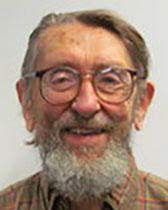Stinchcombe, Arthur

Bio: (1933-2018) American sociologist. Arthur Stinchcomb earned his Ph.d. from the University of California, Berkeley, and has taught at several universities in the United States and Norway, including the University of Chicago and Northwestern University. Stinchcomb dealt with sociological theory, economic sociology, and social history, and the more specific topics he studied were stratification, organizations, high schools, and slavery in the Caribbean.
Stinchcomb accepted the functionalist view of society and believed that for a functionalist causal explanation of the emergence of social practice, it is crucial to: 1) find out whether that social practice has a consequence/function that survives in a state of equilibrium, regardless of tensions 2) determine whether the increase in tensions affects that social practice, that is, whether it tends to survive or strengthen due to tensions, 3) determine exactly how the function/consequence affects the survival or strengthening of social practice that produced it. Stinchcomb believes that Marxist theory can also be reformulated in a functionalist framework so that functions and dysfunctions would be considered in the context of unequal power relations and opposing interests of different classes. Building on the functionalist theory of stratification developed by Kingsly Davis and Wilbert Moore, Stinchcomb hypothesizes that the greater an individual's contribution to the work of an organization, there will be greater inequality of rewards between that individual, and other members of that organization.
Stinchcomb believes that it is impossible to develop a single theoretical explanation for all significant social changes in history because these social changes are the product of a series of causally related events that create unique configurations of elements for each significant social change. It is necessary to study the differences, but also the analogous processes that occur for each specific type of social change.
Stinchcomb believes that, in the modern era, with the increase of urbanization, literacy, monetary economy, and economic, social, and political differentiation, comes a need to create organizations that will have specific purposes. These new organizations depended on the cooperation of individuals who did not know each other before, and on the application of new techniques and routines, which would sometimes be specific to only one organization. He believed that organizations, once they have established their way of functioning, show a great deal of inertia in their form and way of functioning, which sometimes prevents them from adequately adapting to external changes. Stinchcomb proves this hypothesis by pointing out that the key characteristics of organizations, which operate in one branch of industry, are closely related to the period in which that branch of industry originated. Thus, all companies engaged in the textile industry are more similar to each other than companies operating in the automotive industry, because these two industries were developed in different historical periods. The survival of specific organizations depends on their ability to adapt to external changes, despite the tendency towards inertia. In this regard, it is important to study the cessation of some organizations, to determine how selective factors affect the survival or transformation of organizations.
Fields of research
Authority Economy History Industry Inequality, Social Institution and Organization Power, Political SlaveryMain works
„Some Empirical Consequences of the Davis-Moore Theory of Stratification”, in American Sociological Review (1963);
Rebellion in High School (1964);
„Social Structure and Organizations”, in March, J. G. (ed.) Handbook of Organizations (1965);
Constructing Social Theories (1968);
Creating Efficient Industrial Administrations (1974);
Theoretical Methods in Social History (1978);
Economic Sociology (1983);
Stratification and Organizations (1986);
Information and Organizations (1990);
Sugar Island Slavery in the Age of Enlightenment: The Political Economy of the Caribbean World (1995);
When Formality Works: Authority and Abstraction in Law and Organizations (2001);
The Logic of Social Research (2005).

